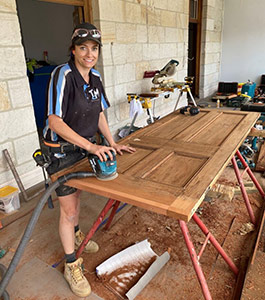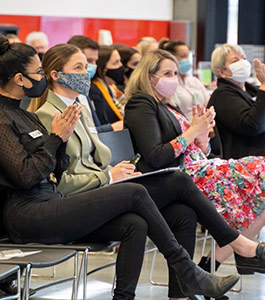Completely eradicating bias and prejudice is impossible, but you can change certain behaviours to be more open and empathetic. If you are interested in being less biased–there is good news and bad news.
Let’s start with the bad, Humans are naturally biased. The only way our brains can make sense of the world is to simplify it by putting things and people into mental category “buckets” that are either good or bad, interesting, or boring, etc. The good news is that while eliminating bias and prejudice is impossible, there are degrees of bias and prejudice, partly as the product of experience.
What then, can we learn from the available research to apply to ourselves, if our goal is to become a less biased version of ourselves?
Here are four key recommendations:
EMBRACE COGNITIVE DIVERSITY
This means learning to tolerate and perhaps even like people who think, act, and feel very differently than you do. It may be as simple as watching a TV program that you hate, or listening to a podcast that you vehemently disagree with. The better path would be to make an effort to interact with people who question or dislike your values, at least to understand how they think.
One of the most consistent findings in social psychology is that simply being exposed to people who are different–this includes socio demographic and ethnic diversity–tends to make us a bit more open-minded and tolerant, particularly if we can find some common ground or overlap between their views and ours.
CULTIVATE YOUR EMPATHY
Empathy is an old topic in psychology, defined as the ability and willingness to take other people’s perspectives to understand what they are thinking and feel what they are feeling.
Start by analysing what other people may be thinking, their motives, and attitudes. Then try to justify why they may think and feel as they do. In particular, pay attention to those who are less privileged and disadvantaged, and consider–at least temporarily–that they may not be as lucky or successful as you, despite being as interesting, talented, or hard-working (if not more). Think of how you would feel if you were in their shoes. These and other simple exercises on perspective can help you create a habit for empathic thinking and feeling, which will make you more tolerant, and perhaps even less biased.
MAKE YOUR BIASES EXPLICIT
In other words, get real. Awareness of bias is a necessary step for dealing with it, even if it’s not the entire antidote. One interesting tool to get there is the implicit association test, which while not perfect, has been used for decades to explore the gap between people’s explicit and implicit biases.
This does not solve the problem of people who are aware they are racist and sexist and proud of it. But they tend to be a smaller proportion of the overall population than the people who, inadvertently, project more minor biases in their interpersonal exchanges with others.
CONTROL YOUR BEHAVIORS
Ultimately, what matters is not how you feel or what you think about people deep down, but how you behave. This is so obvious that we almost forget it.
So while you’ll never be bias-free, if you try to see things from other people’s perspectives who are not like you (which will generally be easier if you spend time with them), and you critically evaluate what your main biases are, you will probably be able to keep them in check, and even hide them





